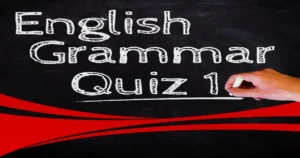Modals Revision Cards
Modals are auxiliary verbs in English grammar that express the mood or attitude of the speaker towards the action or state described by the main verb. They convey the speaker’s ability, permission, obligation, possibility, prediction, and other similar ideas. Some common modal verbs include: “can”, “could”, “may”, “might”, “must”, “shall”, “should”, “will”, “would”. Modals are followed by the base form of a verb, and are used to modify the meaning of the main verb.
Past – Modal + have + V3
Modals – Can, Could, Need, Must, May, Might, Would, Will, Dare, Ought, Shall, Should
Can
Ability : She can sing very well, but she can’t dance.
Permission : You can use my phone. Can I use your phone?
Possibility (theoretical) : Anyone can win a lottery.
Could
Ability (in the past) : I couldn’t dance well when I was a child.
Permission : Could I smoke here? (more polite than can)
Possibility : She could be injured.
May
Permission : May I come in? (asking)
You may go now. (giving) (more polite tan can)
Possibility (factual) : He may become the next Mr. America. (fact)
Any boy can become Mr. World. (idea)
Might
Possibility (remote) : I might become Manager next year.
Permission (rarely used) : Might I smoke here?
Shall
Intention of speaker (First person only) : I shall not be long.
In semi-legal language : The driver shall produce his/her licence on demand.
Will
Willingness : He will do it if you ask him. Will you (please) shut the door.
Intention (mainly first person) : I promise I’ll call you tonight.
Prediction – (a) Specific : The game will be finished by now.
(b) Timeless : Oil will float on water.
Would
Willingness : Would you please let us go?
Characteristic activity in the past : She would sit staring out at the sea for hours.
Must
Obligation : You must complete the work by Friday. (present)
You had to complete the work by Friday.(past)
Logical necessity (rules) : Parents must accompany children under ten.
Ought to
Obligation : You ought to see a doctor. (ought to and should are less forceful than must)
Probability : Helen has been studying hard for the exam, so she ought to pass.
Need not
Immediate necessity : We needn’t buy our tickets now.
Permission (not to do something) : You needn’t come to college tomorrow.
Dare
Have the courage to/not have the courage to : We daren’t go in there.
Dare I ask him?
He daren’t complain.
Should
Obligation : We should obey our parents.
We should respect our teachers.
Probability : He should be in London by now.

